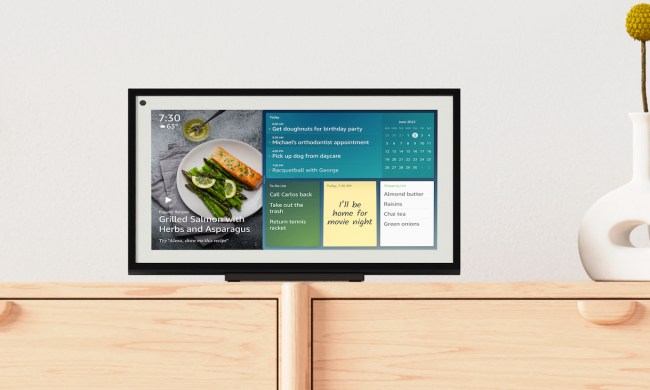Alexa can do some pretty amazing things lately. It can take you to Westworld, or help you fight aliens. It can make you the reigning overlord of a smart home, triggering “party time” with a single voice command. It can call you a cab, order you a pizza, or read you a bedtime story. But a new study commissioned by U.K. digital marketing firm Code Computerlove has discovered that most people use this transformative technology to … boil an egg.
Potentially the most powerful device in the Internet of Things universe is used by most people for the simplest, most basic household functions imaginable. Sixty-five percent use the speaker to play music, while half of the 1,000 respondents to the poll conducted by OnePoll listen to news or the weather. And one in five use Alexa’s sophisticated platform to time the boiling of an egg. That same percentage would like Alexa’s help in telling the perfect joke.
“A lot of people are banking on home speakers being the future of home automation — and they are certainly making progress in helping homeowners link all their smart technology together. So voice-activated devices are definitely here to stay,” said Louis Georgiou of Code Computerlove. “But I think this survey reinforces that we’re probably not using the technology to its full capabilities. We’re still quite conservative and limited in the tasks we’re asking our devices to perform. My prediction is that we’ll see a move toward more valuable and worthwhile interactions — instead of just asking Alexa for a weather forecast when we can look out of the window ourselves.”
Language itself is causing some stress among users, at least across the pond. The study reported that nearly half of all U.K. citizens get odd answers from their Alexa because it can’t understand their regional accents — a perfectly understandable complaint given that the smart speaker now speaks fluent French and Spanish. Nearly half of all respondents are worried that their voice assistants might start talking to each other in a language they don’t understand. Eighty percent of us are worried that our smart speakers are recording our conversations.
Regardless of those fears, the survey reflects how fond users have become of their talkative digital assistants. At least a quarter of respondents report chatting with their smart speaker every day, while that same amount reports taking their voice assistants to bed with them. That’s if they can find them — around 30 percent of users report having forgotten they even have a smart speaker in the house.
It’s not a result that is unique to the U.K. (except maybe that part about boiling eggs). American surveys have also found similar results, reporting that smart speaker users mostly listen to music, check on the weather, and set reminders for mundane daily tasks, as well as more lively subjects like joke-telling and online dating.
The survey also reflects the market’s opinion that Amazon is winning the smart speaker war. More than 75 percent of users reported owning an Amazon Echo, while Google Home came in second place and a mere fraction reported owning Apple’s HomePod.


